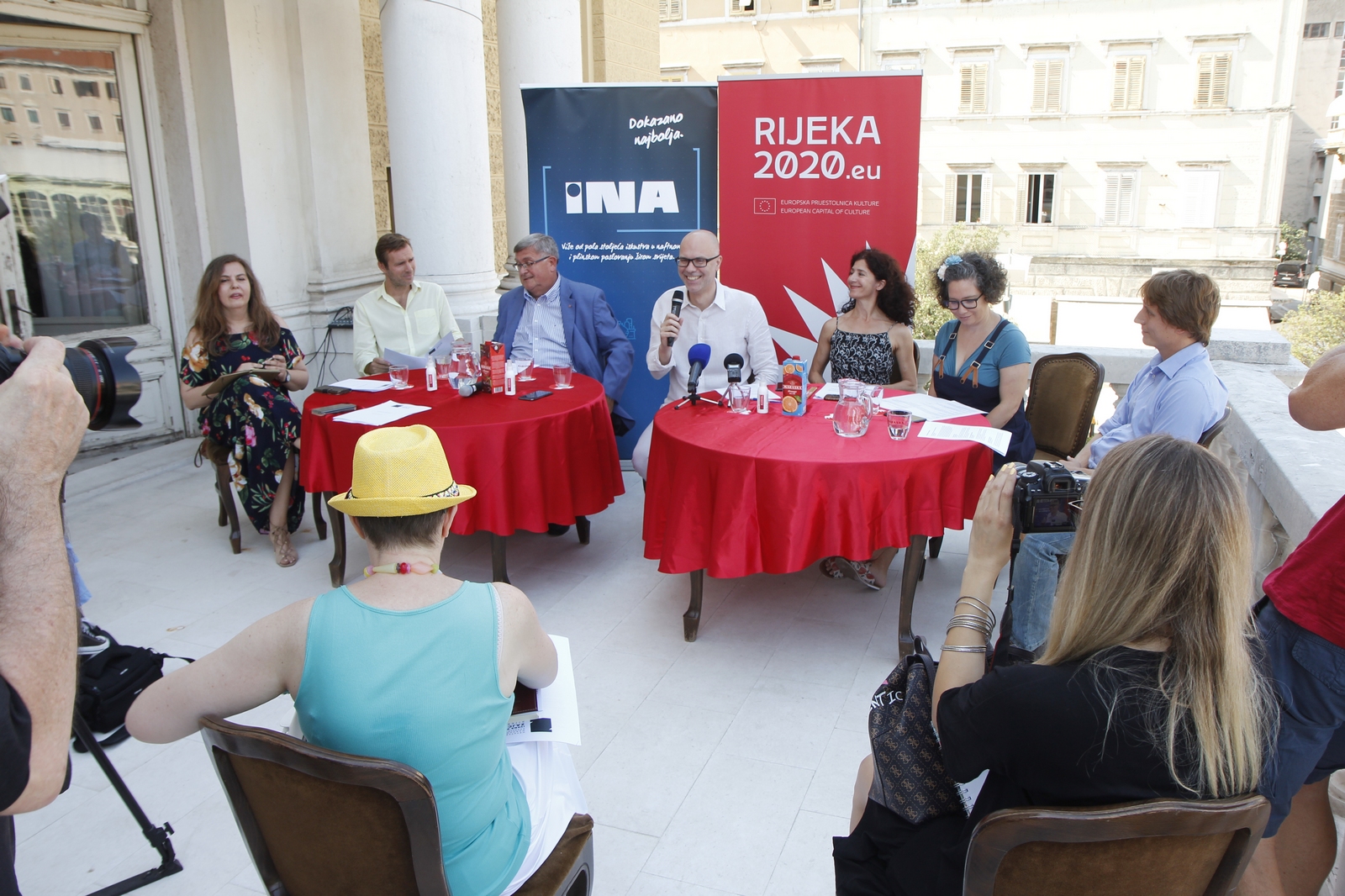“Due to uncertainty surrounding potential new protective measures against the new coronavirus epidemic, which already limit the capacity of the audience as well as the possibility of performing on stage, cutting our sales revenues in half and causing uncertainty of program subsidies from budgetary sources, today we are unable to present the program, but rather the intended program for the 2020/2021 season,” CNT Ivan pl. Zajc intendant Marin Blažević pointed out at the start of today’s press conference, adding that the only possible motto for the next season is “survival,” mostly by relying on one’s own capacities.
With a dose of optimism and readiness to accept the highly specific challenge, the director of Croatian Drama, Renata Carola Gatica, announced four premiere titles: the musical “Hair” by James Rado, “Dangerous Liaisons” by Christopher Hampton and directed by Slovenian director Ivana Djilas, “Steel Magnolias” by Robert Harling, and “Fahrenheit 451” by Ray Bradbury, directed by Ivan Penović.
The program of the Fifth Ensemble, an inclusive program for young people with disabilities, will also continue with a new play under the working title “Researchers”, (“Istraživači”) directed by Iva Nerina Sibila and Selma Banich, and the Rijeka Youth Theatre “Kamov” will continue with three completed productions.
The premiere program of the Italian Drama ensemble brings, as announced by director Giulio Settimo, five new projects: “Il vangelo del nemico / Gospel of the Enemy”, by Roberta Dubac and directed by Giulio Settimo, “Adriatico,” by Siniša Novković, who will also direct this play for families, Boccaccio’s “Decamerone / The Decameron” directed by Luciano Delprato, “Fiume’s X-mas” written and directed by Giuseppe Nicodemo, and “Alfa Romeo Jankovits,” by Laura Marchig, directed by Tommaso Tuzzoli.
The opera and concert program, which will mainly depend on the protective measures against COVID-19, was presented by Marin Blažević, who explained that the opera stage will feature performances of the new and renewed projects that are able to accommodate the orchestra on stage in line with safety distancing measures.
Thus, October, which marks both the opening of the theatre season and the 135th anniversary of the construction and opening of the Rijeka Theatre building, will feature a performance of Verdi’s “Aida” by dramaturge and director Marin Blažević, adapted for the Rijeka stage from the version performed at the Pula Arena. The opera “Nikola Šubić Zrinjski” by Ivan pl. Zajc will also be renewed, directed by Dora Ruždjak Podolski. The season will also feature the renewal of Mozart’s “Marriage of Figaro” directed by Eva Buchmann, Bizet’s “Carmen”, another show from the Pula Arena adapted and directed by Marin Blažević, and the renewal of Massenet’s “Werther”, directed by Fabrizio Melano.
For the first time, as part of the ECoC – Rijeka 2020 project, “An Opera After Kamov” by Zoran Juranić will be performed, for which Juranić will also conduct.
Besides the opera performances, eight symphony concerts are planned by the Rijeka Symphony Orchestra, as well as a cycle of eight chamber concerts under the artistic direction of Petar Kovačić.
The Rijeka intendant announced that starting next season, the chief guest conductor will be Philipp von Steinaecker, with Valentin Egel as house conductor. Maestro Ville Matvejeff will continue to collaborate with the Rijeka Opera as a special guest conductor.
The ballet premiere program includes two projects and three titles. According to the director of the Ballet, Maša Kolar, the first to premiere will be “Odyssey,” with concept and choreography by the famous choreographic tandem of Walter Matteini and Ina Broeckx. Following that are the premiere of the ballet evenings “Pathetique” and “Brut,” the first of which was created by the celebrated British choreographer Douglas Lee, the second by Maša Kolar.
Rijeka Mayor Vojko Obersnel assessed the new season’s program as highly ambitious, but “with more uncertainty than anything else,” particularly where finances are concerned, but expressed hope that the season will ultimately turn out exactly as planned. At the end of his address, he congratulated and thanked the Rijeka Theatre, which realized the majority of ECoC projects within just two months, and which performed as many as seven premieres following its reopening after the lockdown.
The head of the Department of Culture of the City of Rijeka, Ivan Šarar, said that the “new normal” has also produced something good and encouraged innovation and flexibility, which has already resulted in the exceptional program of Rijeka’s Croatian National Theatre. Thus, in his words, the Theatre needn’t fear for its survival.



